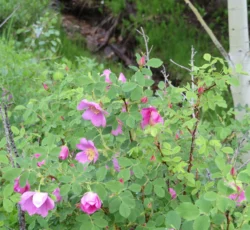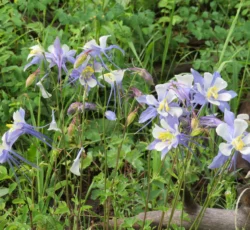When Do Columbine Flowers Bloom In Colorado?
When Do Columbine Flowers Bloom In Colorado?
Colorado is known for its stunning natural beauty, and one of the state’s most iconic and beloved flowers is the columbine. With its unique shape and vibrant colors, the columbine is a favorite amongst gardeners and nature enthusiasts alike. If you’re planning a trip to Colorado or are simply curious about when these beautiful flowers bloom, this blog post is for you. We will explore the blooming season of columbines in Colorado and provide some tips for experiencing their beauty firsthand.

1. The Native Columbine
The native columbine (Aquilegia caerulea) can be found throughout Colorado and is the state flower. Its bloom time depends on several factors, including elevation and location. Generally, columbines start blooming in late spring or early summer, typically around May or June. However, in higher elevations, such as the Rocky Mountains, the blooming season may be delayed until July or even August.
2. Altitude Matters
One of the key factors influencing the blooming season of columbines in Colorado is altitude. As you ascend to higher elevations, the growing season becomes shorter, and this affects the timing of bloom. Lower altitude areas, such as Denver and Boulder, usually experience columbine blooms in May and June. As you venture into higher elevations, such as the Colorado Rockies, the blooming season may be delayed by a few weeks or more.
3. Favorite Growing Conditions
Columbines thrive in certain growing conditions, and understanding their preferred environment can help you predict when they will bloom. These flowers prefer partial shade to full sun and well-draining soil. They are often found in mountain meadows, along streams, and in rocky areas. Columbines also appreciate cooler temperatures and can withstand some frost, making them well-suited for Colorado’s climate.
4. Cultivated Varieties
In addition to the native columbines, there are many cultivated varieties available that can extend the blooming season. Gardeners in Colorado can choose from various colors and hybrids that bloom at different times. Some popular cultivated columbines, such as the Songbird series or the Clementine series, might bloom earlier or later than the native columbines. You can consult with local nurseries or gardening experts to select the best varieties for your garden and desired bloom time.
5. Exploring the Wild
If you’re eager to see columbines in their natural habitat, there are numerous places in Colorado where you can experience their beauty. Rocky Mountain National Park, Maroon Bells, Mount Evans, and Mesa Verde National Park are just a few locations known for their impressive displays of wild columbines. Hiking through alpine meadows or exploring mountain trails will often lead to delightful encounters with these exquisite flowers.
6. Cultivating Columbines in Your Garden
If you want to enjoy columbines right in your own backyard, they are relatively easy to grow. Choose a spot with well-draining soil and partial shade, especially during hot summer afternoons. You can start columbines from seed or purchase young plants from a local nursery. Plant them in early spring or fall, ensuring they have enough time to establish before the colder winter months. Water them regularly but avoid overwatering, as columbines prefer slightly drier conditions.

Conclusion
The blooming season of columbines in Colorado is a sight to behold. From the native columbine to cultivated hybrids, these flowers bring a touch of beauty to gardens, meadows, and mountain landscapes throughout the state. By understanding the factors that influence their blooming time, such as altitude and growing conditions, you can plan your visit to Colorado accordingly. Whether you choose to explore the wild or cultivate columbines in your own garden, witnessing the vibrant colors of these flowers is a memorable experience that truly captures the essence of Colorado’s natural splendor.
Planning a trip to Colorado soon? Let us help! Contact us today to learn more about what we can do for you!

